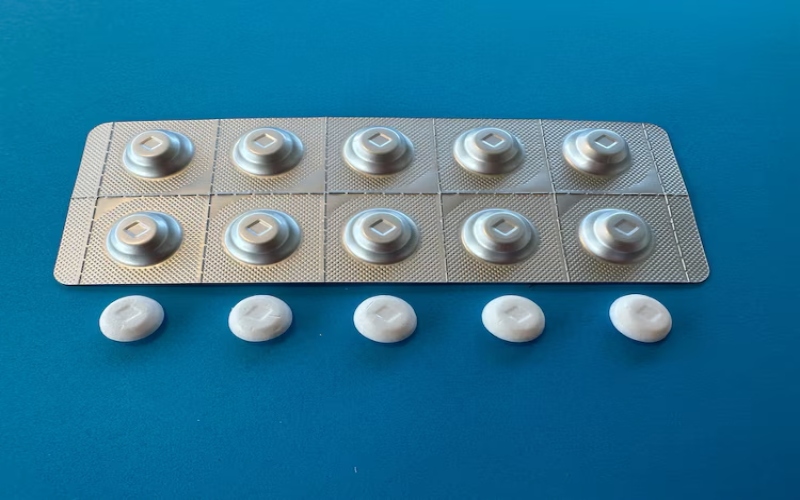Groundbreaking trial finds single dose of LSD eases anxiety

While it has a history of recreational use, LSD is now being seriously reconsidered by the medical community for its therapeutic potential when administered in controlled, clinical settings.
A groundbreaking study has revealed that a single dose of Lysergic acid diethylamide (LSD) can significantly reduce symptoms of generalised anxiety disorder (GAD), with effects lasting up to three months.
The Phase 2b clinical trial, conducted by MindMed and published in the Journal of the American Medical Association (JAMA), investigated the effects of MM-120, a pharmaceutical form of LSD, on individuals diagnosed with moderate to severe GAD.
LSD is a psychedelic compound known for its ability to alter perception, mood, and cognitive function. While it has a history of recreational use, LSD is now being seriously reconsidered by the medical community for its therapeutic potential when administered in controlled, clinical settings.
More To Read
- Violence is a normal part of life for many young children: Study traces the mental health impacts
- Senate urges swift action on Kenyans stranded in Russia, gender violence, mental health, and illegal construction
- When birth brings heartbreak: Mothers share their stories of children with deformities
- Explainer: As mental health challenges rise, here is what you need to know about antidepressants
- Mental health advocates call for community-based support as economic strain deepens
- How to talk to your kids about mental health
The clinical trial focused on 198 adults, aged between 18 and 74, with a primary GAD diagnosis, who presented moderate to severe symptoms. They received either a placebo or a single dose of LSD at varying strengths: 25, 50, 100, or 200 micrograms. The treatment was given without any accompanying psychotherapy, allowing researchers to isolate the effects of the drug itself.
The results were striking. Participants who received the 100-microgram dose experienced a rapid and significant reduction in anxiety symptoms, with noticeable improvements reported as early as the following day.
By the end of the 12-week study period, approximately 65 per cent of these individuals continued to experience reduced anxiety levels, and nearly half had achieved full remission.
Interestingly, increasing the dose to 200 micrograms did not enhance these benefits and was instead associated with more frequent side effects, including mild hallucinations, nausea, headaches, and visual distortions.
These side effects were generally limited to the day of dosing and were considered manageable within the clinical setting. In contrast, those who received lower doses of 25 or 50 micrograms showed no meaningful improvements over the placebo group.
The findings suggest a clear dose-response relationship, with 100 micrograms emerging as the most effective and well-tolerated dosage. Equally noteworthy is the fact that the LSD worked without the need for ongoing therapy, highlighting its potential as a standalone treatment for anxiety disorders.
Despite these promising results, the study had some limitations. Many participants were able to guess whether they had received LSD or a placebo, which could have influenced their perceptions and outcomes.
Additionally, some participants dropped out before the study was completed, slightly reducing the final sample size. The long-term safety and effectiveness of LSD beyond the 12 weeks also remain to be studied in future trials.
What is anxiety?
Anxiety is a mental health disorder characterised by persistent feelings of worry, fear, or unease that interfere with a person's daily life. When it becomes chronic, as in the case of generalised anxiety disorder, it can be debilitating and difficult to treat with conventional methods.
It affects more than 350 million people globally, making it one of the most common and disabling mental health conditions. In Kenya, approximately 15.7 per cent of adults experience an anxiety disorder during their lifetime. Access to consistent, long-term mental health care, in many parts of the world, including Kenya, remains limited.
According to the World Health Organisation (WHO), anxiety disorders are characterised by intense and excessive feelings of worry, fear, or unease that are difficult to control and persist over time. These symptoms often interfere with daily activities and can be debilitating.
Common signs include difficulty concentrating, irritability, restlessness, and physical symptoms such as heart palpitations, sweating, trembling, nausea, and sleep disturbances. People with anxiety disorders may also experience a constant sense of impending danger or panic, which can severely affect their quality of life.
Traditional treatments often involve long-term use of medication and therapy, which may not be accessible or effective for everyone, as noted by the WHO.
The study thus contributes to the growing body of research supporting the therapeutic use of psychedelics in psychiatry.
It demonstrates that when used responsibly and in a clinical environment, LSD may provide a fast-acting, durable, and scalable treatment option for anxiety and potentially other mental health conditions.
And as additional trials progress, the medical community may be on the brink of a new era in mental health care - one where a single experience, under proper guidance, has the power to change lives.
Top Stories Today














































